© Rene Matić
Following their Berlin solo debut, the artist’s latest work travels to London this spring
“Opposing layers. Loving layers. Violent layers,” says Rene Matić of the motivation for their latest series of work, As Opposed To The Truth, the title of which comes from their therapist’s observation about painful truths. Matic was looking for love in all the places it wasn’t present – “I wanted to deal with that in this show,” says Matic, “but I refuse to give up my quest for love.”
Matić’s work is marked by the search for love, but also for what constitutes an identity, especially as it pertains to nationhood. Matić’s first debut at Vitrine Gallery in 2020, Born British Die British, was a ‘love letter’ to the artist’s father as well as a long-term interrogation of ‘Britishness’, exploring themes of subculture, faith and family. As Opposed To The Truth is an extension of this work and an interest in the artist’s father; both shows were “heartbreaking to work on,” the artist tells me. “I am interested in the line between blessing and burden. How to bring things to light and dark all at once. I think both shows grapple with this.”
Collecting black dolls from thrift stores and the internet, Matić became obsessed with the neglected, often broken and left behind playthings. They trace this obsession back to their father, who was abandoned as a black child growing up in Peterborough, UK. The practice led to the series Restoration (2022 – ongoing), which looks at the memories of trauma embedded in objects, and how objects and symbols can carry emotions far further than sometimes even people can.
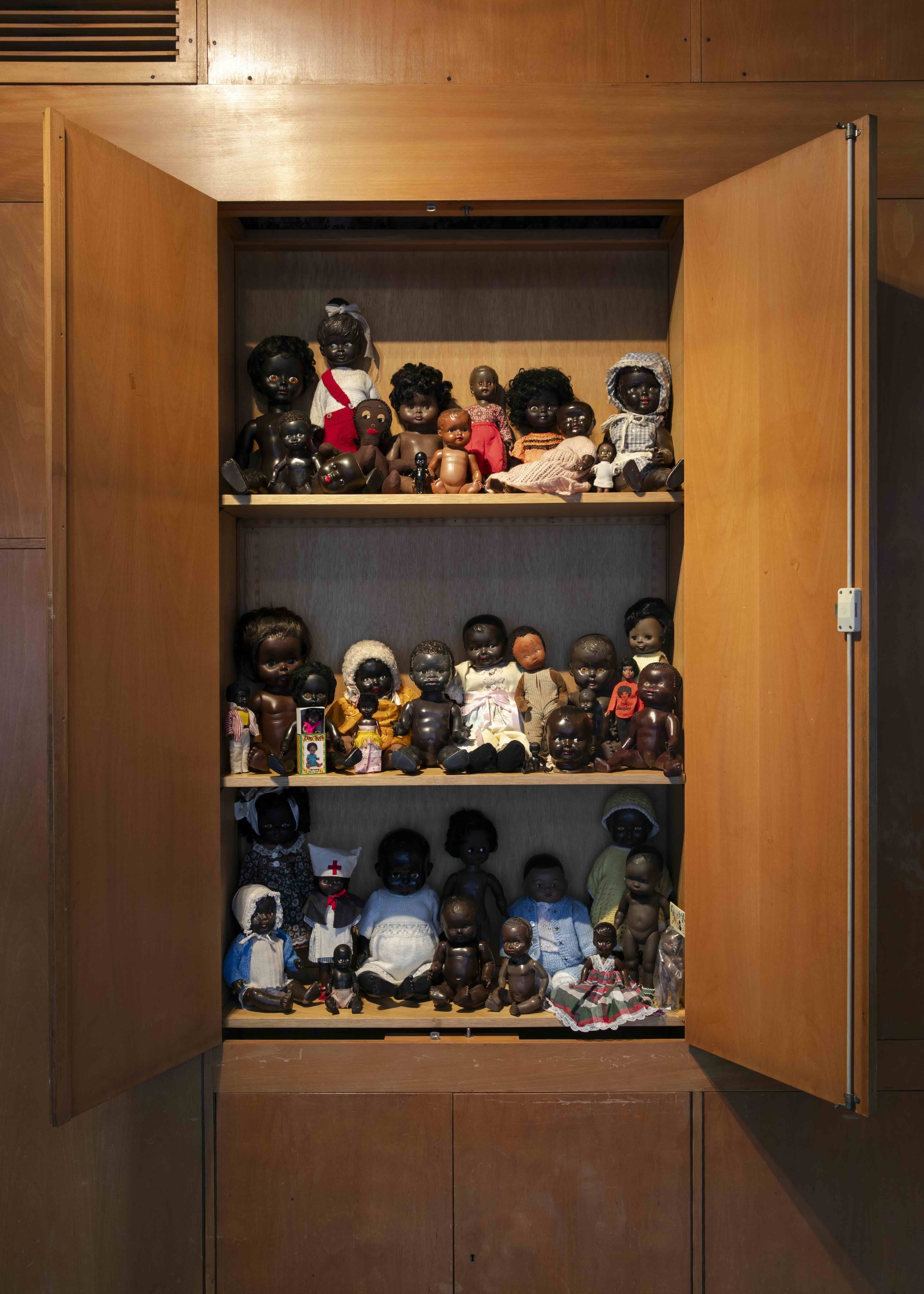
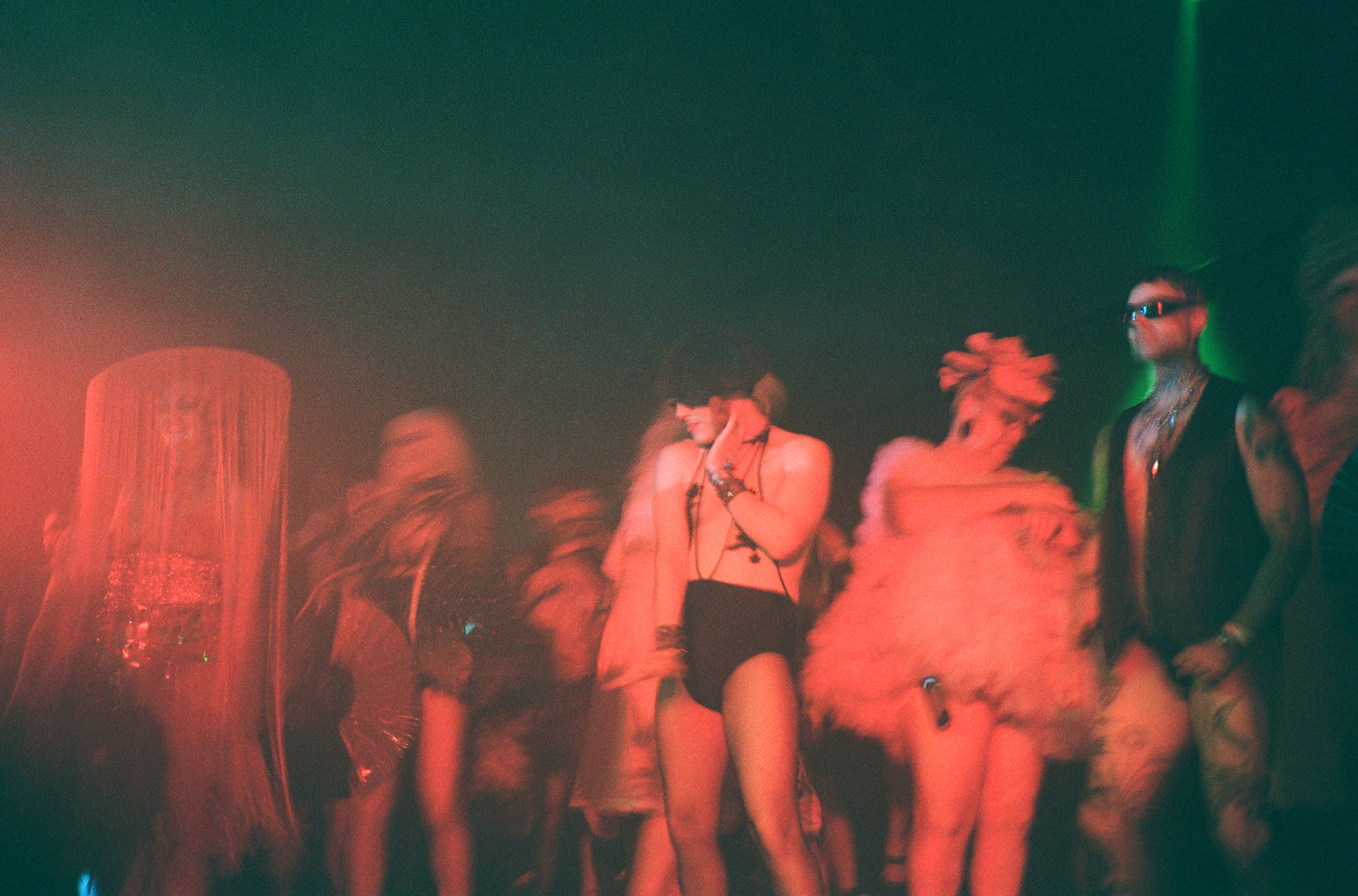
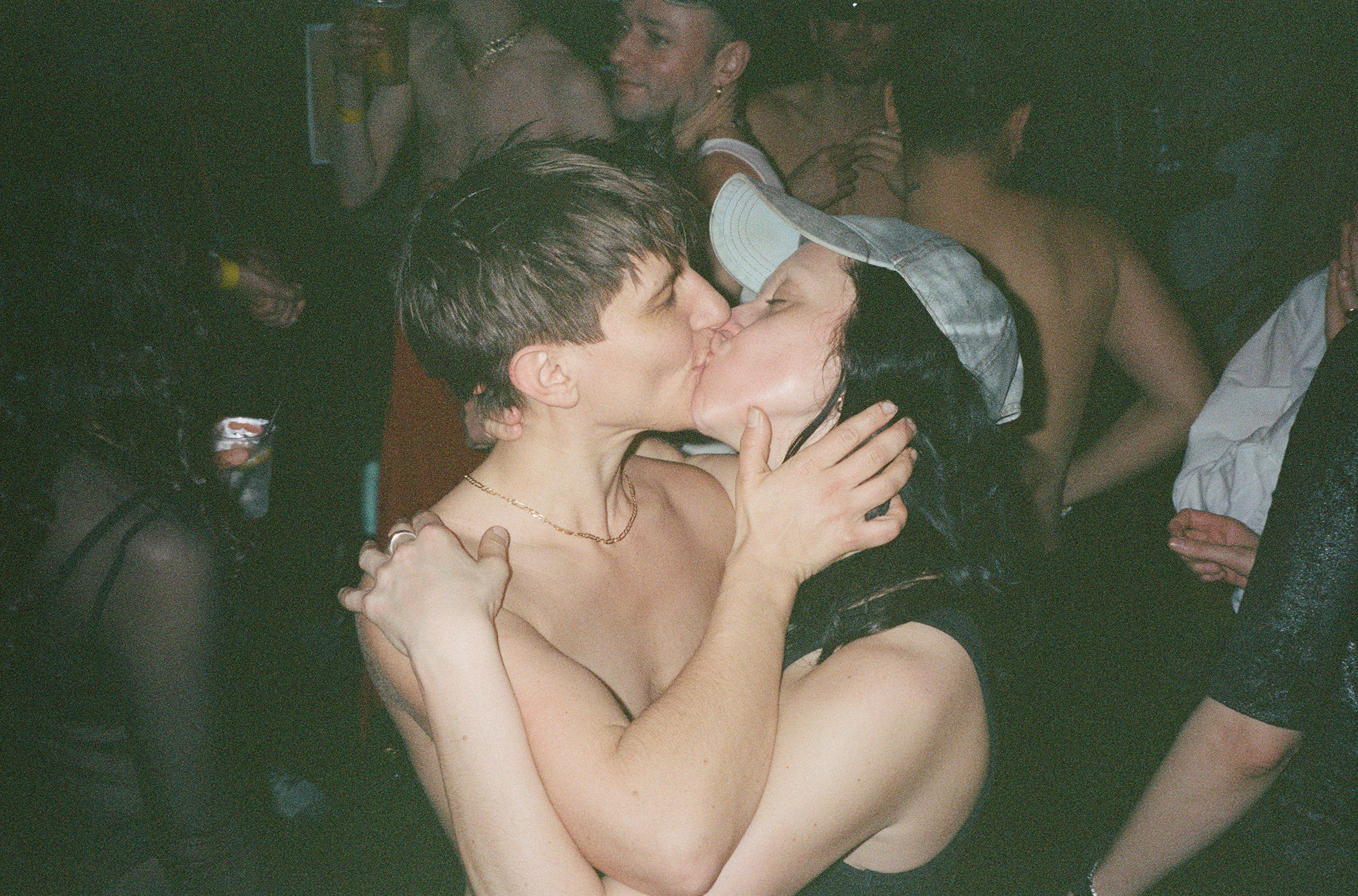
“Photography and imaging is a weapon – I use it to contradict and undermine”
“I’ve always loved dolls. Of course growing up as a black child you’re always on the search for [black dolls],” Matić’ recollects of their childhood. The ones displayed in the exhibition are from the 1960s, when companies began to mass-produce ‘ethnically correct’ black dolls, the artist tells me. “I realise my obsession with these dolls began around the time of producing upon this rock where I was looking into my dads upbringing in the ‘60s. His mother and father’s circumstances meant that he wasn’t very well looked after as a child and I think subconsciously I started to find these black babies and give them the care they deserve, in a way that my dad deserved.” The idea of caregiving, the artist thinks, is able to address wounds of the past, and is tied up with both burdens and blessings, an idea of duality – in addition to ideas of dual heritage – that runs throughout their work.
As Opposed To The Truth at CCA Berlin is Matić’s first institutional solo exhibition in Germany, which will be followed by a publication on Matić’s work in the spring. Carried throughout the show is a sense embodied solidarity; the series feelings wheel (2022 – ongoing) focuses the lens on bodies and sexualities, identity politics, and expressions of political alliance within the context of right-wing populism and global struggles.
These ideas are highlighted in perhaps no more pertinent way than in Matić’s focus on flags, as seen in several of their images. “Symbolism does a lot of the work for me,” the artist tells me. “The exploration of blessing and burden, and of true or false. I use flags as a metaphor for power and hegemony.” With the understanding of a flag as a semiotic power, Matić’s work aims to highlight the complication of identity and belonging that a flag can impose on its bearer. As the racially provoked riots across the UK during summer 2024 showed us, the flag can be appropriated as a weapon that divides to, in some cases, fatal degrees, as much as it can unite.
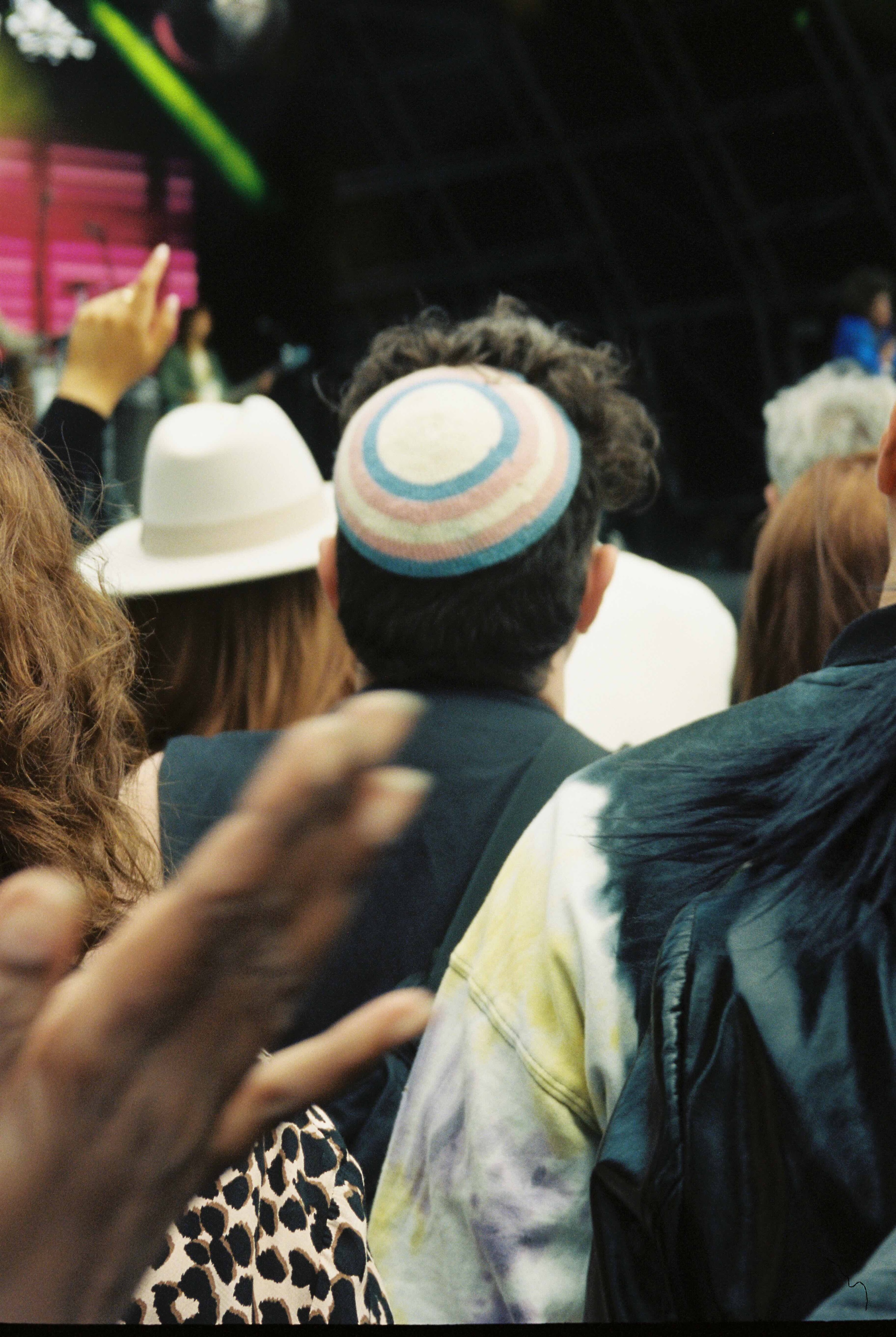
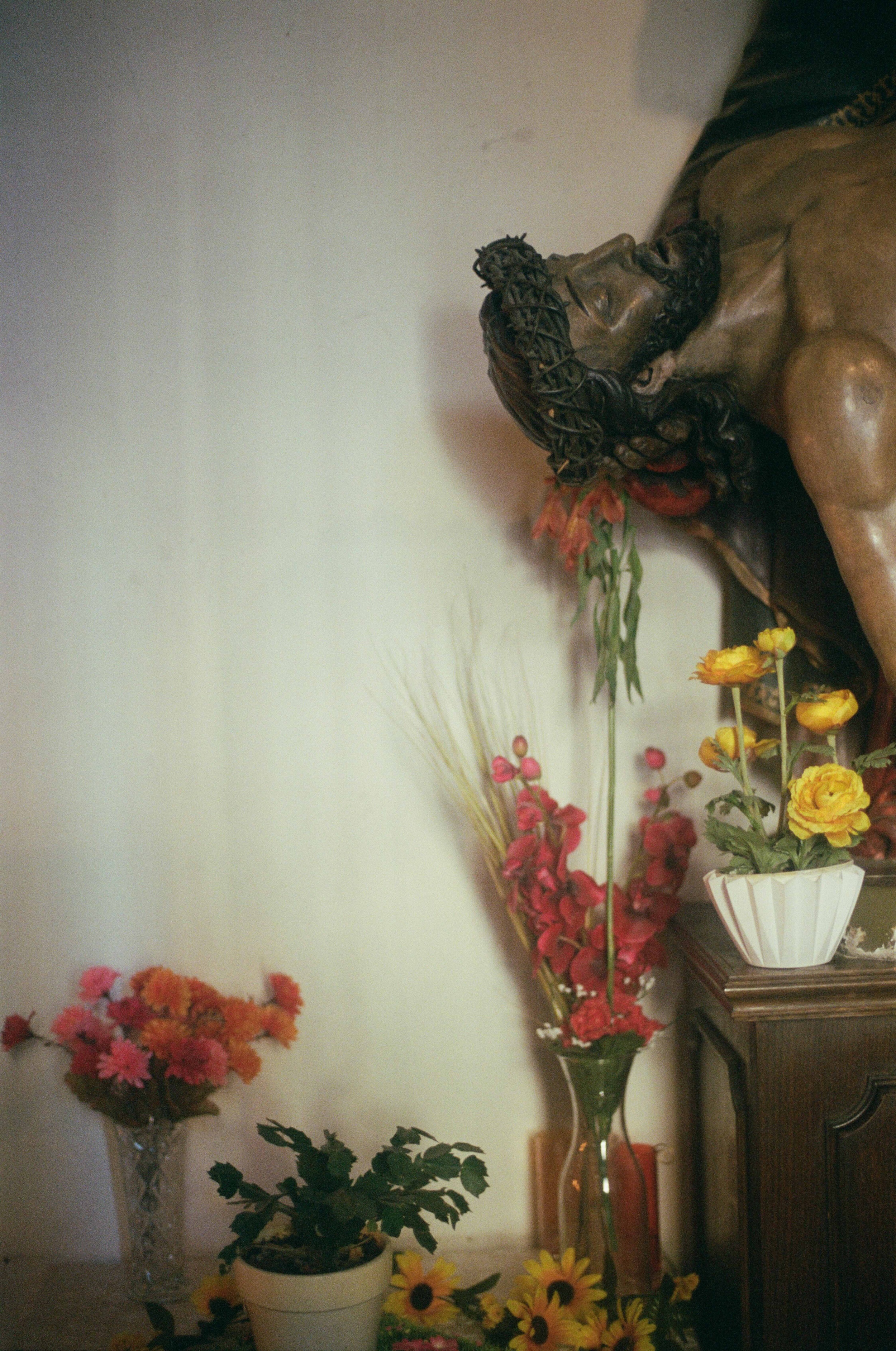
In Untitled (No Place for Violence), for example, Matić seeks to “embarrass the kind of principle of what a flag is supposed to be,” they say. The work uses words from Joe Biden and Barack Obama’s reaction to Donald Trump’s assassination attempt in July: “There is no place for violence in our democracy.” Matić hopes that by pulling apart and piecing back together the ideas sewn into a flag, they can begin to expose hypocritical political rhetoric: “Photography and imaging is a weapon – I use it to contradict and undermine.”
Matić’s 2025 is looking busy. They are now working towards their next solo show with Arcadia Missa gallery in April, after which they will also present a solo show at Chapter gallery, New York City. “I am taking next year as an opportunity to refine my image making practice. I’m going to be using a dark room for the first time,” Matić tells me of what else they have in store for the year ahead. “I want to be with the images as intimately as possible.”

